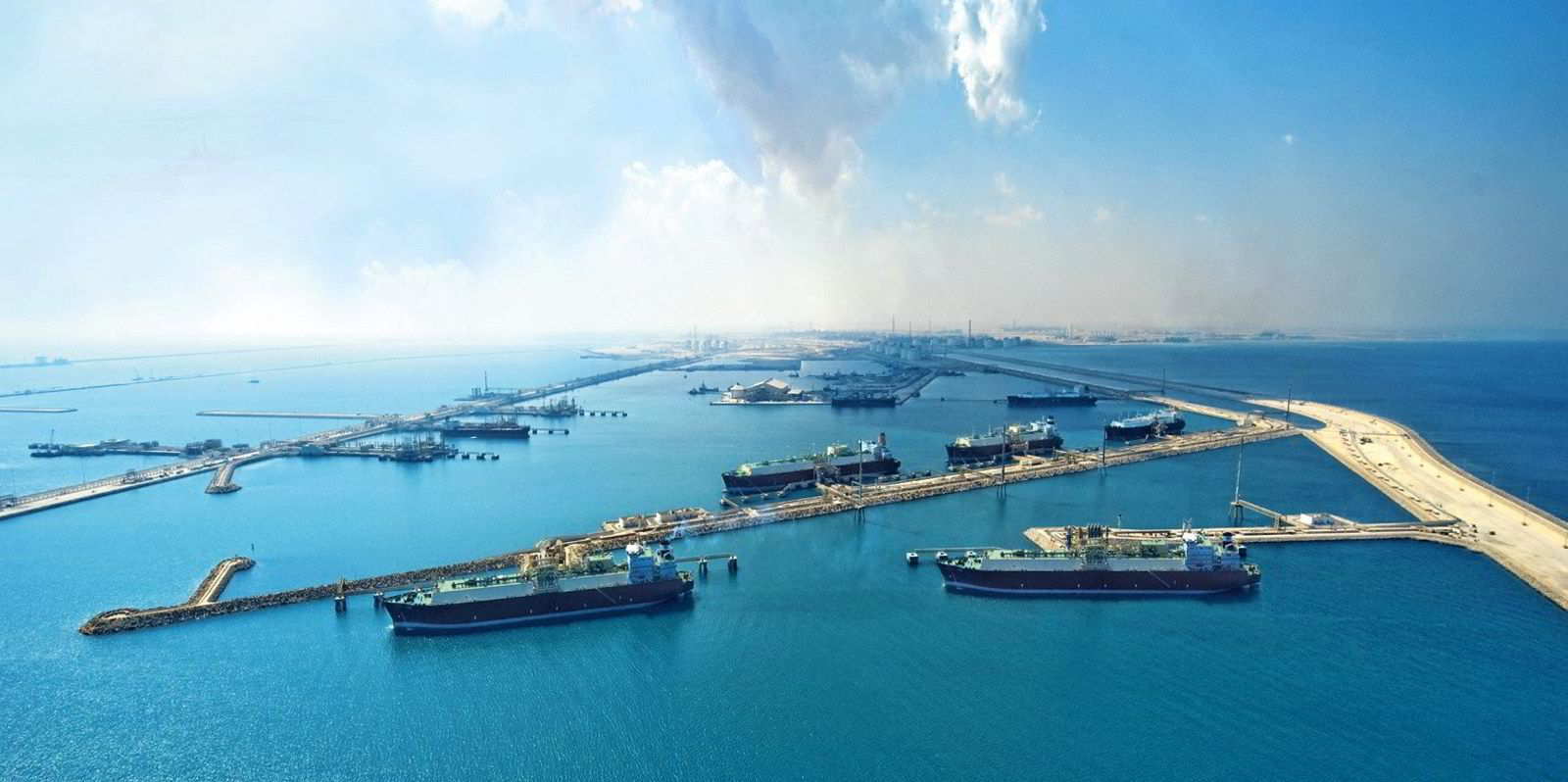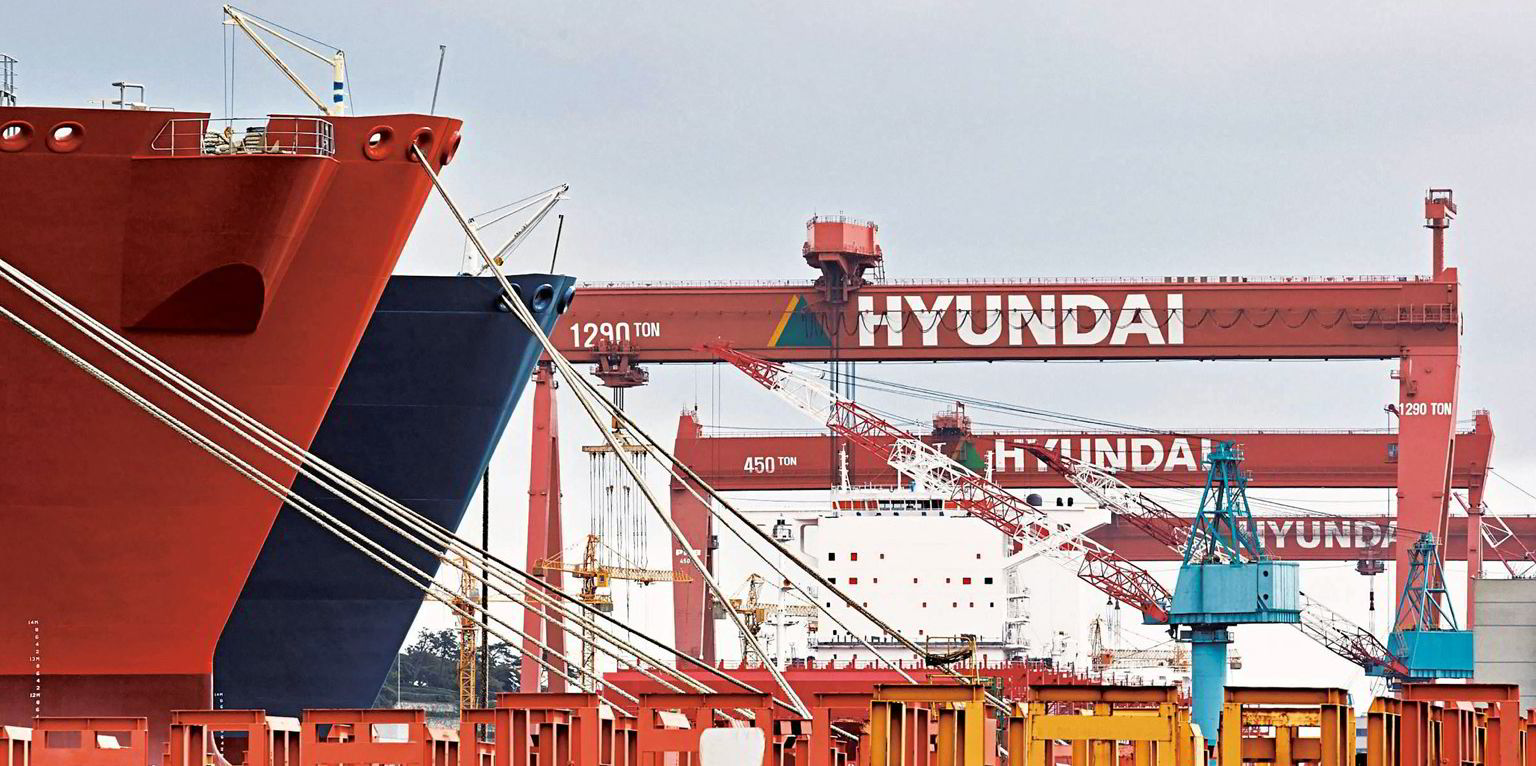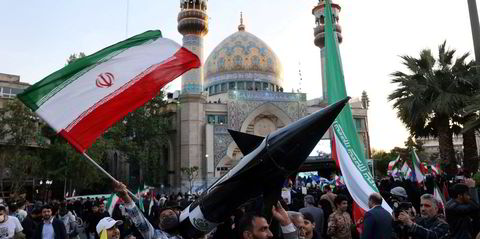Shipbuilding orders fell heavily as the pandemic spread early last year, but yard bosses now believe the impact has been minimal as the orderbook has bounced back.
Global newbuilding contracts fell by one-quarter to 22.6m cgt in 2020 and their value declined by 39% from 2019 to $48.7bn, according to Clarksons Research, as companies scaled back orders because of the initial disruption to supply chains.
But prospects for the shipbuilding industry have dramatically improved this year, with several yards already exceeding their 2021 order targets.
Clarksons estimates that 955 vessels worth $67.2bn have been ordered this year, an increase of 137% year on year in value terms.
The boom has been driven by containerships and gas carriers, as well as improving newbuilding prices. Newbuilding slots are tied up to 2024, according to some sources.
Despite that, shipbuilders are taking care to avoid any chance of an outbreak in their yards, as a single case of Covid could shut down an operation or significantly slow work.
They have adopted measures such as daily temperature taking, mask wearing and social distancing. Some yards have made such measures mandatory to prevent disruption to the labour-intensive industry.
Covid-induced closures affected shipyards in Europe, northern Asia and South-East Asia as workers tested positive for Covid-19 in the early days of the pandemic, delaying vessel deliveries.
Travel restrictions also caused problems in negotiating deals and overseeing inspections or sea trials, and initially prevented crews sailing newbuildings away from China.
“We have got used to discussing newbuilding projects with owners over Zoom meetings,” says a Chinese shipyard executive. “But to get a service engineer to attend the launching of a newbuilding is a challenge.””
Reduced demand for oil has hit yards that focus on building rigs and offshore platforms, as well as potentially tankers. Keppel Offshore & Marine will exit the rig-building business after completing existing units under construction, and focus on infrastructure projects, including renewable energy.
Yards have had to apply for special permission to allow engineers to enter their countries. Even if allowed, personnel from abroad have had to quarantine for two weeks before they can travel to shipyards.
“If the engineer was tested to be positive for Covid-19, the vessel-launching exercise will be delayed and this may affect the delivery for the ship,” the Chinese executive adds.
Travel restrictions have also hurt shipbuilders that are dependent on foreign labour. For instance, Singapore’s shipbuilding industry relies heavily on workers from the Indian subcontinent. But the city-state banned travellers from the region due to high infection rates in India.
Keppel Shipyard, which is involved in constructing offshore oil rigs, repairing ships and building highly specialised vessels, is reported to be facing a shortage of 4,000 workers.
An unnamed Singapore shipyard is now looking to hire 850 workers from China for contract periods of one to two years, according to a Chinese website..
In South Korea, the $1.8bn planned merger of Hyundai Heavy Industries Group shipyards with Daewoo Shipbuilding & Marine Engineering has been long delayed, after initially being agreed in March 2019.
The two groups won approval from China, Singapore and Kazakhstan for the merger. But the European Union’s anti-trust agency has delayed its review three times and Japan is also yet to give approval.







